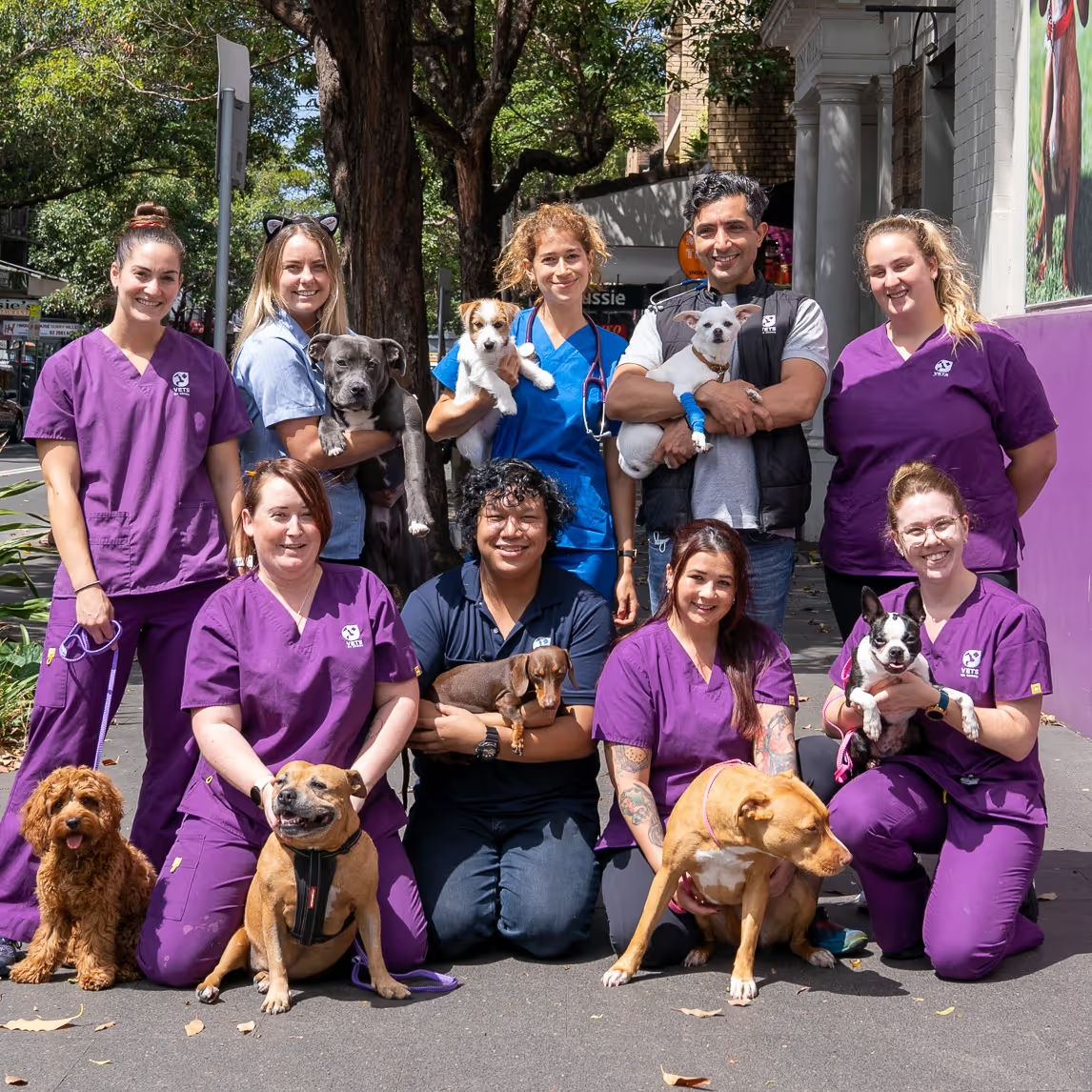Pet blood tests in Surry Hills NSW for healthy, happy pets
Regular blood work finds issues early, keeps pets safer during procedures, and helps us tailor care. It is quick, gentle, and gives a clear picture of organ health, infection and more.


Last updated: 1 November, 2025

What a pet blood test is and why it matters
A pet blood test checks cells and chemicals in your pet’s blood to assess health, detect disease early, and guide treatment.
BENEFITS:
- Finds problems before symptoms appear
- Monitors ongoing conditions and long term medicines
- Checks organ health for kidney, liver, thyroid and pancreas
- Supports safe anaesthesia and recovery
- Gives a baseline for future comparison
When do we recommend blood test
| Situation | Why we test |
|---|---|
| Annual wellness visit | Finds early changes and builds a baseline |
| Senior pets from about 7 years | Tracks age related changes every 6 to 12 months |
| Before a procedure | Checks organs and clotting for safer anaesthesia |
| New symptoms like vomiting, thirst, weight change, low energy | Identifies infection, inflammation, organ or endocrine issues |
| Long term medicines | Confirms the dose is effective and safe |
| Ongoing conditions such as diabetes, kidney or thyroid disease | Guides treatment and timing for rechecks |
| New rescue or new to your home | Screens for hidden issues and infectious disease |
How to prepare and what to expect
Checklist before your visit
- Withhold food for 8 to 12 hours unless we advise otherwise. Water is fine.
- Calm transport helps reduce stress
- Give regular medicines unless we ask to hold a dose
- Bring a fresh urine sample if requested
Visit timeline
- Check in and nurse triage
- Vet exam and consent
- Gentle sample collection
- In clinic testing for common panels
- Partner lab for specialised assays
- Results explained with next steps
Timeframes
Most wellness and pre anaesthetic panels are same day. Specialised tests are usually 24 to 72 hours.
Aftercare
A small bruise or a clipped fur patch may be seen and settles by itself. Contact us if there is swelling, ongoing bleeding, marked lethargy, or you are worried.
Frequently asked questions
Usually yes. Withhold food for 8–12 hours unless we advise otherwise. Water is fine.
It feels like a quick pinch. We use gentle handling, treats and a cuddle mat to keep pets calm.
A small sample. For most panels it is less than a teaspoon.
Rarely. Only if a pet is highly stressed or if it is safer for them. We will discuss this with you first.
Many screens are same day in clinic. Specialised tests are usually 24 to 72 hours.
Give us a call. Tell us what and when they ate. Some tests remain valid. Others may be rescheduled.
Both. Routine panels run in clinic for fast answers. Specialised assays go to a NATA accredited partner lab.
They are clues, not a diagnosis on their own. We interpret them with the exam, history and sometimes imaging or urine tests.
Every 6 to 12 months from about seven years of age, or as advised for existing conditions.
Strongly recommended for safety. It checks organs and clotting so we can tailor anaesthesia.
Some cancers change blood counts or organ markers, but many do not. Results may point us toward imaging or further tests.
Minor bruising or a small clipped patch of fur can occur and settles on its own. Call us if you see swelling, ongoing bleeding or marked lethargy.
Yes. Send us the report and we will review it with you.
Book a quiet time, wait in the car if preferred, bring favourite treats, and ask about pre-visit calm aids.
Seek same day care for any of the following:
- Collapse, pale gums or laboured breathing
- Ongoing vomiting, black stool or blood in urine
- Sudden extreme thirst or urination changes
- Severe lethargy or not eating for a day

.svg)
